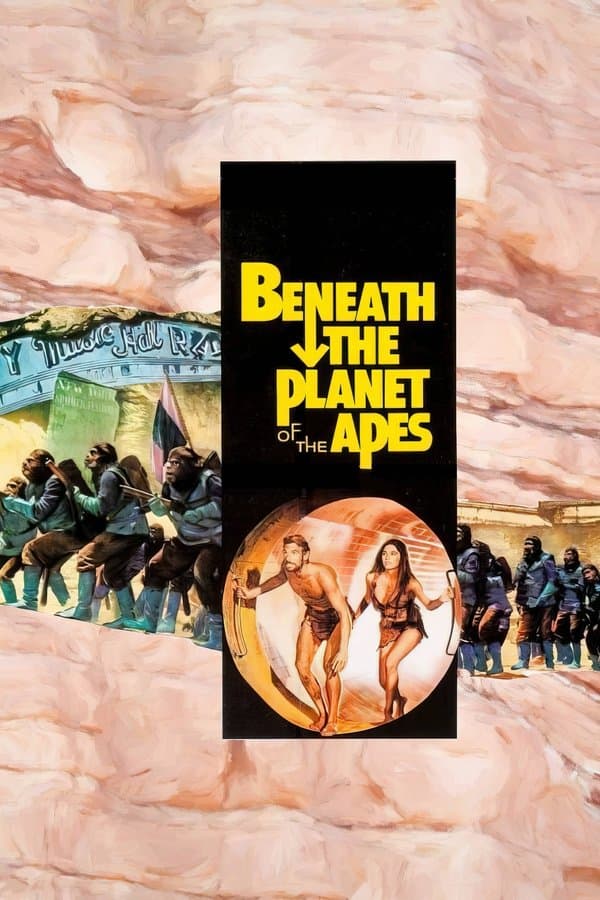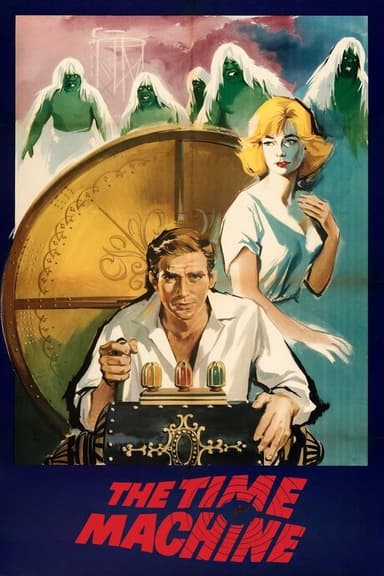
Beneath the Planet of the Apes
1970 • Adventure, Mystery, Science Fiction • G
The sole survivor of an interplanetary rescue mission lands on the planet of the apes, and uncovers a horrible secret beneath the surface.
Runtime: 1h 35m
Why you should read the novel
If you found the world of 'Beneath the Planet of the Apes' intriguing, consider discovering its original source: Pierre Boulle's novel 'Planet of the Apes.' Boulle's book immerses readers in a sophisticated allegory that questions the very nature of humanity and civilization in ways the film only hints at. The novel's subtlety, sharp satire, and richly drawn characters provide a compelling reading experience that rewards thoughtful reflection.
Experiencing the book offers depth beyond what any adaptation can achieve. Boulle’s narrative invites exploration of the complex social hierarchy among the apes, the cultural quirks of their society, and the internal struggles of the human protagonist as he navigates a world where everything is turned upside down. The literary medium allows Boulle to probe philosophical and moral issues with nuance and intelligence that risk being lost or simplified in film adaptations.
Reading 'Planet of the Apes' not only enriches your understanding of the franchise but also allows you to appreciate the full vision Boulle intended. Before—or even after—watching the film, invest the time to read the novel and encounter a profound story that critiques our world as much as it entertains.
Adaptation differences
Unlike the movie 'Beneath the Planet of the Apes,' which is itself a sequel, Pierre Boulle's novel 'Planet of the Apes' presents a self-contained story with a distinctly different tone and structure. The novel follows journalist Ulysse Mérou as he journeys to a distant planet where apes are the dominant species, and humans are mute and primitive. There is no journey into the ruins of a former human civilization like New York City, nor is there an underground cult worshipping a doomsday weapon as seen in the film.
The book delves deeper into the scientific and societal aspects of the ape civilization. It features examinations, research laboratories, and judicial processes, focusing on the apes' views on evolution and intelligence. The film adaptation shifts gears towards a more action-packed, post-apocalyptic setting, introducing the mutants and their psychic powers—elements that are wholly absent in Boulle's original story.
Characters are another key difference: film protagonist Brent, the mutants, and the entire storyline involving the doomsday bomb are unique to the movie. Boulle's protagonist, Ulysse, experiences a much more cerebral struggle, centered on communication, cultural misunderstanding, and identity. The book's social satire is pointed and often darkly humorous, contrasting with the bleakness and nihilism that permeate the film adaptation.
Finally, the endings differ significantly. The novel employs a twist where the protagonist encounters unexpected consequences upon returning to Earth—a clever literary device questioning cyclical evolution. The film concludes with a catastrophic ending involving the bomb and the implied destruction of all life, providing a spectacle-driven conclusion not envisioned in the introspective, thought-provoking closing pages of Boulle’s work.
Beneath the Planet of the Apes inspired from
Planet of the Apes
by Pierre Boulle

















